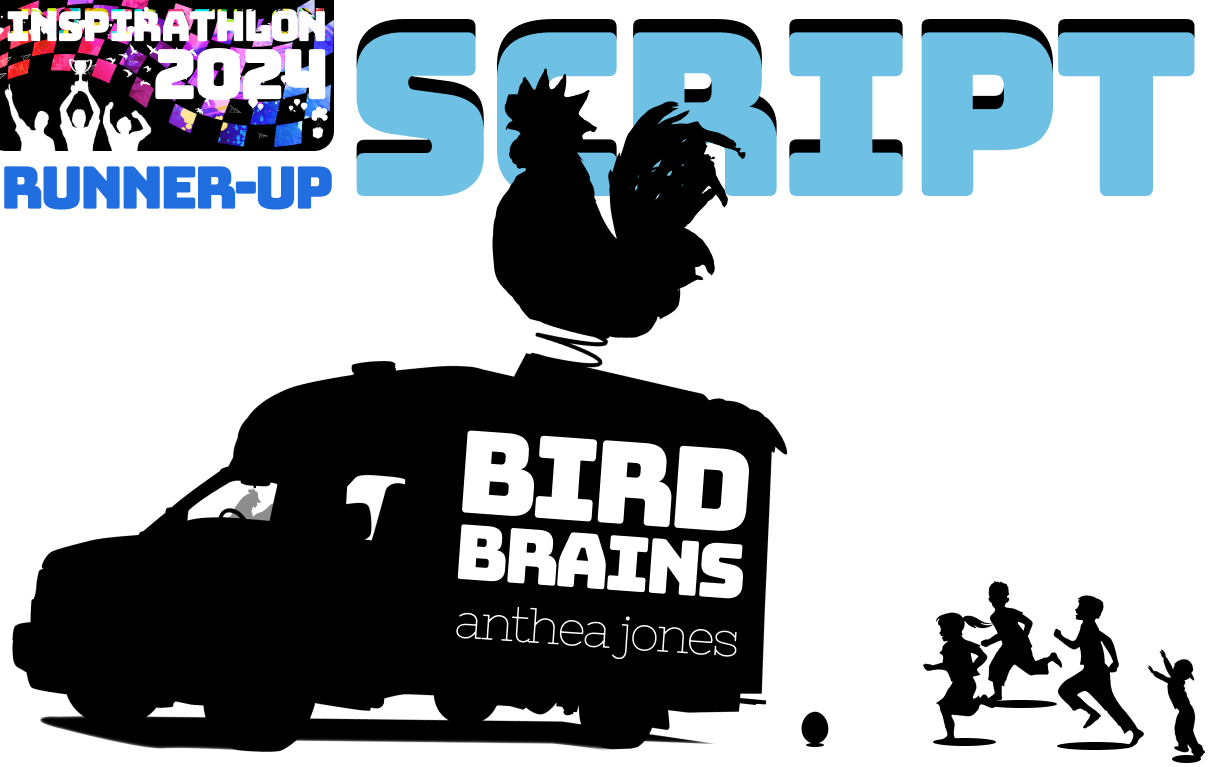
One Step at a time
Early morning, the dawn weaker than milky tea. At the bedroom window, mug in hand, Dulcie watches the cars and buses creep—slow and stop, then creep—slow and stop, brake lights reflected red in the puddles.
Soon, the season will slip; summer bending to autumn’s sway. Ice will blossom on the panes, and in her garden the late-blooming roses will shiver, fall. But today there is just the rain to contend with. It is only light; there is no excuse not to take the dog for his morning walk.
On cue, the door edges open and Hamlet is at her side.
‘Yes, yes.’ She pulls her anorak from the wardrobe as the dog capers around her. ‘These bones don’t just dress themselves!’
At the front door she pauses, patting her coat. Forgetfulness is her other shadow these days, always ready to pick her mind as well as her pocket. Take the keys; and where’s your phone, Dulcie? Even nearing the end, William used to nudge her memory, his mind as sharp as the elbows jutting from his pyjamas; keys dangling from his fingers.
It’s mild out and the rain hasn’t worsened. Small mercies. Still, she’ll have to be careful as the dog pulls, and she feels the change from the path’s gravel to the slippery pavement. She steadies herself with a hand on the garden wall. Hamlet takes the chance to relieve himself. She doesn’t want to return for the walking stick, the one the doctor gave her. Carbuncle of a thing.
‘Steady!’ She might as well be addressing herself; Hamlet has ignored her, lurched to the bus stop where he is sniffing exuberantly at the hand of a schoolboy, bag abandoned in a puddle.
‘Your books will be getting wet, young man.’ It’s so easy to fall back into teacher mode. ‘All your hard work. Lost to the water!’
‘Cave canem!’
‘I beg your pardon?’
‘Beware of the dog,’ he says, stroking Hamlet’s floppy ears, ‘but it doesn’t look like he’d hurt anyone.’
‘Cave…‘
‘The Romans. We’re studying them at school.’ He straightens and meets her uncomprehending gaze. ‘My teacher Miss Cartwright showed us the sign in Pompeii.’
They both look at Hamlet, now snuffling the boy’s bag, and laugh. He lifts the rucksack out of the dog’s reach and the blazer’s crest catches her eye: two black birds perched atop three books.
‘You go to Ravenscroft?’
The boy nods.
‘I used to teach there, a long time ago. So much must have changed since my day.’
She sighs – since my day – she might as well turn back and fetch that stick. The boy is engrossed by Hamlet, and doesn’t seem to have heard at all. Shouldering his rucksack, he crouches down, oblivious to the steady drizzle or the fact he’s standing in a puddle, letting the dog lick his hands. Suddenly, he straightens with a jerk, chin buried into his coat.
‘Thanks, Miss. He’s a lovely dog.’
And he is striding briskly away, like he’s exiting a terrible scene: Exeunt, pursued by a dog.
‘Well boy,’ she says, tugging the lead gently, ‘it’s just you and me.’
An Indian summer morning. The sunshine breaking through the chink in the curtain. Dulcie has already been awake since the small hours. A good night’s sleep: that is something she can only dream about. The bed’s empty half, the mattress still moulded to William’s form, yawning just behind her, forcing her to throw back the duvet and make for the kitchen and an early cup of tea.
Are there things she should do today, appointments to keep? Doctor, dentist, hairdresser, feet? None seem to raise a red flag, but she cannot be sure. She picks up the jotterpad; the page for today is blank. Perhaps that is reassuring.
It’s been a long time since the weather put a spring in her step. Still, the milder temperature means there’s no need for gloves. Hamlet is straining forward and she’s pleased to have a better grip on the lead. He’s too strong for her on the best of days, a labrador-sheepdog mix with youth on his side. Today he doesn’t even pretend to obey her commands to heel. She’s been tricked by the blue skies into choosing her flats, and her heart is hammering as the dog tugs at her centre of gravity. She’s got no choice and lets go of the lead; immediately he careers off. As she steadies herself and tries to get her breath back, she sees why he is bounding forward: there is the boy. The whole of Hamlet’s back is wagging along with his tail, and he lands enthusiastic licks on the boy’s hands and face when he crouches down to pick up the trailing lead. As Dulcie draws alongside, she almost wishes she didn’t have to be the nag and spoil the fun.
‘Hamlet. Naughty dog.’ She slaps her hip and points to the ground at her side. ‘Come here.’
‘It’s ok,’ he laughs. ‘Here you go.’
He hands back the lead, begins to go. As always, Hamlet has his own ideas, weaving about the boy, tangling the lead round his legs as if he could bind him to the spot.
‘I’m so sorry. I’ve never known him so disobedient!’
‘Shall I hold him? School’s just round the corner.’
She hasn’t walked that way for so long, not since she left, all her professional life reduced to a single cardboard box.
‘If you’d rather not…’
She is being ridiculous; it’s just her former workplace: a two-a-penny brick building.
‘Well, as he’s being such a handful today!’
He unravels the lead from about his legs and they start off together, Hamlet trotting beside the boy, now a model of canine compliance.
What should she say? She used to talk to students all the time: chasing homework, reprimanding in the corridor, all just part of the teacher’s course; though some pupils would like a chat, or even need one. A sympathetic ear when none was listening at home. She tells herself to stop dithering: just take a breath and start.
‘I used to know Miss Cartwright.’ It is something to say. ‘You mentioned her yesterday.’
‘Yeah. She’s my History and Latin teacher.’
‘She was new to Ravenscroft when I was in my last year.’ She recalls a voice rallying the classroom troops. ‘Ever so enthusiastic about teaching she was. Fancy her still being there!’ She senses his boredom; how she’s just rambling on. ‘Sorry, I never asked you your name.’
‘Felix.’
‘And do you like Latin, Felix?’
‘More than I thought I would. Miss says it’s because I’m good at logic.’
They round the corner. The school looms at the end of the street. A moth could be trapped in her chest. A heart murmur, that is what her doctor had said, listening with his stethoscope.
‘I never learned Latin,’ she manages. ‘It wasn’t on offer when I was a girl. I think the only Latin I know is from Julius Caesar: “Et tu, Brute?”‘
The houses stop and the gardens give way to school grounds: playing fields she used to patrol, searching out the smokers huddled at the perimeter fence. Ahead, the cars are pulling up, children clambering from the warmth into the drizzle of a new school day. She stops, breath coming in rasps; the moth beating its frantic wings.
‘I have a bottle of water.’ Felix reaches for his bag.
She grips the fence and forces herself to look at the place she spent the best part of her life. It had seemed easy, avoidance. Always to take another turn, no need to pass that building, to pause and revisit that decision which had been simple, given there was no real choice at all: to care for William. Early retirement had sounded like a dream as an overworked young teacher; the reality, in her sixties, had proven otherwise.
‘I’ll be fine. Don’t you worry about me.’ She taps her watch. ‘You’d best be on your way.’
Felix gives her the lead and Hamlet a final stroke before making his way to the school’s gates. The dog looks mournfully on, pricking his ears up when the boy turns.
‘I’ve got Latin first thing.’
‘Then tell Miss Cartwright that Mrs Lockwood, Dulcie, the former English teacher, wishes her well.’
He waves, disappearing behind the school gates. She can almost see her old self following him, a bag full of exercise books and papers slung over her shoulder, mounting the stairs, entering her classroom: rows of desks, posters with her favourite quotes, and her place at the board. And if she waits long enough, will she see her leave? Silver-haired, hurrying down the steps despite the heavy box in her arms; bundling it into the boot, books and papers spilling everywhere; vision swimming as she slammed doors, driving off to the husband who needed her more.
‘Come on.’ She tugs at the loitering dog. ‘Home.’
A cold snap in October. Condensation clouding her draughty window panes. William always said they needed to be replaced. Dulcie wipes the sleeve of her cardigan across the glass and peers outside. At her feet, Hamlet whines expectantly.
‘Running late today.’ The dog whimpers. ‘Still, we must remember patience is a virtue.’
She sits on the edge of the bed to put on her coat, looking down the road for the bus. When she sees number 73 pull out into traffic further down the street, the dog is instantly ahead of her, bounding to the front door.
The air is sharp, honed to an edge by the cold, but there’s still no frost. Hamlet leaps up to lick Felix’s face. Dulcie doesn’t bother telling him to get down anymore; there’s no point. Watching them these last weeks she remembers how wonderful it is, to let a moment of joy leap up like that.
The capering finally settles down and they head off, Felix holding the lead while the dog pulls ahead. Dulcie wills her feet to keep up with the energetic pair. And could it be that she can move a little faster than a few weeks ago? Now she never even glances at the walking stick propped in the coat stand at home; its presence no longer feels like a reproach.
‘Heel!’ she calls. Felix only urges ‘Ite!’ and laughs at her puzzled look.
He tells her about a test coming up, his first in Latin. How he’d like to do well.
Joy: a student who wants to learn! And her teacher’s instincts flex when she notices the flashcards he’s holding. It’s too tempting, and before she knows it, the words are out of her mouth.
‘I’m going to test your vocabulary.’ Bossy boots.
‘Only if you don’t tell me off when I get everything wrong!’
She takes the cards.
‘Fame?’
‘Gloria.’
‘He sees?’
‘Videt.’
‘They praise?’
‘Laudent.’
Back and forth, back and forth. It could have been yesterday that she was setting vocabulary for her students to learn; modelling for them how words build like bricks, one upon the other, making those strong defences: sentences like solid walls, the mortar of syntax: defences she thought life would never chisel away.
‘Victory?’
‘Victoria – of course!’
‘Well, Felix,’ she says, returning his cards, ‘I think you’re very well prepared.’
They’re nearing the school grounds. Soon the first P.E. students will run out with bare knees and open scowls, but for the moment all is still: a pitch awaiting its players.
Why does he have to learn all these words: fame, praise, glory? Her eye lifts from the field, and casts ahead to her old schoolroom. First floor up, three rooms along, windows that seem to wink at her in the mellow October sun. She sees herself, book in hand, reading the play out loud with her class: Where did all of Caesar’s fame and glory get him?
Et tu, Brute?
Betrayal had been just a concept to study, back then. Now she rarely reads. Questions every time she opens a book. What did she read last night? Who is this character? Are they new? Reluctantly starting from the beginning, only to doze off after trying to read the same paragraph for the sixth time. Betrayal: it didn’t have to stalk you down in the Capitol, not at all. What you had to beware of were the Ides of the Mind. The lunar eclipse of old age.
She is going to ask whether any other words have been set; propose friend, field, or forest as worthy of his Latin lexicon. These are the words that would mean something to her in this dead, yet somehow living, ancient tongue.
But they have walked slowly and now the bell peals. Chimes echo out of the open school door.
‘Thanks, Dulcie.’ He passes her the lead. ‘See you tomorrow.’ A final stroke of the dog. Then he is gone.
Hamlet is reluctant to return home, sniffing every pillar and post, head turning back to the school. With each pause, she contemplates the possible translations for the words she didn’t ask. The key turns with a reassuring click in the lock and she lets herself in. She will ask Felix tomorrow; until then she can try to work them out for herself. Heading to her dictionary, she leafs through to F: fair, field, friend.
Autumn cracks its whip. Leaves curl and fall under the wind’s lash; golden rose petals tremble then drop. In her garden, Dulcie cannot bring herself to sweep them up. Earlier this year, she’d wheeled William out to hear the bird song; to feel the first breath of spring on both their faces and witness the trees, leaves just breaking from their buds.
It had been hard work. The wheels kept jamming in the soft grass despite his bird-like weight. She’d almost been grateful for the effort as a distraction from a nagging thought: will he be here to see the leaves fall? Looking at them now, brown and furled on the ground, they feel like an omen she had recognised, even in all their fresh, green finery. Her hand, with its knotted veins, grasps the rake. If she doesn’t do this, people will look at her unkempt lawn and picture an unkempt widow, hiding away. William was so proud of what they tended together: their little patch of paradise, he’d called it. She’d always laughed at the cliche; now she feels ready to defend it with her life. Well, with the rake at least.
She manages a few minutes, resting often, but it is a start. The compost bags are in the shed: William’s old domain, even in the final years when she had to wheel him. His gloves are still on the shelf, far too large for her; and on the workbench, yellowing piles of his gardening magazines and a mug with a last mouthful of tea, frozen into a circle. So many things to tidy away, so much to clear.
Cradling where his hand would have held the plain white china, she returns to the kitchen. At the sink, she turns on the tap and the water pours and pours. She places it on the side unwashed, and makes her way to the window. The wind has picked up, playing with the leaves she had raked into a small pile. First one and then another lifts and dances, looping effortlessly; clearing the fence, making for the sky.
She can almost hear William calling her his old goose as he shakes out his big, white handkerchief and holds it out to her. No, she mustn’t summon him, the loss of him, like this, she cannot; she looks further down the road to where the leaves seem to be making for: the bus stop.
Every day this last week, she has waited there for Felix, struggling to rein Hamlet back from boarding the bus to look for him. Every day, he has failed to alight. Waiting at the front door, faith springing eternal, the dog is wagging his tail in anticipation.
She waits as other school children emerge from the bus. The same blazers edge past, the same shoes dawdle, but none of them are his. Other people are now boarding and she feels hope dwindle, disappointment swell. Then the awful thought: what if something has happened? She begins to tug Hamlet when she spots him further up the street, sitting down at the next bus shelter. He’s oblivious to the traffic and his fellow pupils walking to school. Recognition pulses inside. She knows this immediately: grief.
The concrete slabs are blistered with ice. Dulcie inches forward, grasping whatever handhold she can: fences and tree branches, unsure if any will help if the frost decides to pull its white blanket from under her.
His narrow shoulders shake and the blazer hangs loose. He suddenly seems ever so young. Hamlet is crying too, there is no other word for the high-pitched noise he is making, burying his shaggy head into the boy’s lap, his tail curled between his legs. Felix falls forward and buries his face into the fur.
Her hand trembles as she reaches out and places it softly on his back. She doesn’t need to reach into those shuddering depths with her questions and require names or roles; their presence sits alongside them.
For a long time they stay just as they are. The school run finishes, the last cars queue at the lights, then turn the corner. All the Ravenscroft blazers are long gone and there is a lull before people start on their shopping. Her hand stays on his back, not moving, just resting in the dip between his shoulders.
‘Gran died a year ago.’ He looks at her as if asking should he continue; she steels herself and nods. ‘She wasn’t sick, just one day her normal self and then the next.’ He rushes on. ‘Mum took it really badly and everything I said just made it worse.’
‘I’m sure your mum didn’t think that at all.’
He shrugs as if to say, well that’s how it was.
‘Gran had a dog. Toby. And I know a dog is just a dog.’ His voice trembles. ‘I’d just sit on the sofa with Toby curled up next to me. It was like Gran was there.’
She forces herself to be quiet.
‘Gran would feed him scraps under the table when she came round on Fridays to make tea. And afterwards, both of us would let him lick the plates clean. We knew Mum would have a fit, so we just never told her.’
Shuddering sobs. Breaking his words.
‘Toby died a few months ago.’
Suddenly he is angry, raking his sleeve across his eyes. ‘Idiot – crying like a baby.’
‘You’re nothing of the sort, Felix. And if you’re a baby, I’m the biggest one of all.’ He glances across and meets her eyes. ’74 years-old and look, I still need a hankie.’
She takes out a delicate one, embroidered in the corner with an old-fashioned D. She offers it to him.
‘Look at us. Two cry-babies, bunking off school together.’
And she’s done it: he smiles and Hamlet raises his head.
Using the bench, she pushes herself shakily to her feet.
‘I know one dog who would dearly love a walk with you.’
He stands too, then takes the lead once more. Hamlet pulls, but he reins him back before shyly proffering his arm. Delighted, she takes it.
The dog strains and Dulcie shuffles; in the middle Felix is anchored, memories kept for the moment at bay. At the school, he bends and hugs Hamlet before handing her the lead.
‘Bye Dulcie. Thanks.’
‘Nothing to thank me for Felix, nothing at all.’
He begins to climb the steps, and perhaps it’s because he has missed him these last weeks, or perhaps he still senses the boy’s hidden need, that Hamlet doesn’t turn tail to head for home. Instead, he bounds after the retreating figure.
Dulcie is yanked forward, feet pulled from under her, ice grazing palm and cheek. The cold shocks as much as the fall and she lies there, not daring to move. Yes, it’s better to close her eyes, shut out how far away the faded sheet of the November sky seems, from down here.
Hurrying feet. Vibrations thrum in her ear. A voice, far off, then closer, crouching down; a fumbling at her wrist.
Where does it hurt? Can you hear me?
The tones are sympathetic but edged with urgency.
Here is the familiar dark; she cannot put faces to these kind people whose glances must dart from her to the road, back to her, then the road.
When did they say it would be here?
The wail of the siren. If she opens her eyes, will she see reflected in their looming, well-meant eyes what she never wanted to be? An image of old age: helpless, prone, defined by pain.
The siren cuts, a moment of silence. Then doors open and slam.
Where’s the casualty? Is she conscious? Alright there dear, can you tell me your name?
Hands are upon her, gentle but insistent. The floor dropping away; the alarming rush, upwards into empty space.
Two men: paramedics, in uniform. They are lowering her onto a trolley. Arms, hers, are strapped down. The gurney’s wheels begin to clack, moving towards the ramp. The angle changes; they push her up into the ambulance and she has this one chance. A whimper she knows, and her eyes slide over the strangers and find them. He is cradling the dog in his arms. One last glimpse before the doors slam shut.
They are taking her away. Like a locket, she treasures the image of Felix holding Hamlet. She closes her eyes, fastening the clasp.
Hovering in the antiseptic air, the scent of spring. She is standing with William, secateurs in hand. Ignoring the thorns, she cuts a stem and holds out the rose for him. He breathes deeply: Heaven!
He is here, in this scent; but the thorn snags, its barb caught in her skin.
‘Leave that now, Dulcie.’ A hand covers her worrying fingers, and she opens her eyes: an arm emerges from a dark blue uniform.
‘You must leave the IV line in, for the antibiotics. Nothing to worry about. They’ll help prevent infection.’
The words make no sense: IV line, antibiotics, infection? She had been in her garden, amongst her golden flowers. To wake to this: a strange ward; roses in a vase, drinking up her horror.
‘When can I go home?’
‘Dulcie, you’ve had a bad fall. Do you remember the fall?’ No time to heave a memory to mind. ‘You’ll have an x-ray later and then the doctor will come.’
‘I don’t want an x-ray!’ She will walk straight out; but her legs refuse to obey, answering instead with a blow of pain.
She sinks back against the stiff white pillow.
‘Not long till lunch.’ The nurse stands, a rigid smile fixed to her face.
‘So, hopefully you’ll be home in time for Christmas.’
A doctor is standing beside her bed, x-ray pictures in hand.
‘You’re lucky, Mrs Lockwood. Your bones are good for your age. You won’t need a full hip replacement, just a partial one. There’ll be some paperwork to sign. Do you have someone who could help you?’
William had always filed the papers away: gas, electricity, council tax: calling their lives to order. She can see the funeral parlour’s invoice, her hand hovering above the page, unable to write ‘paid’.
‘No, I will manage.’
The doctor nods, gives her hand a quick squeeze.
‘We’ll soon have you up and on your feet again.’
Dulcie watches the trainers walk briskly away from her bed, disappearing around her bed’s curtain. It comes to her, what drove her students to dash for the door the second the school bell sounded at the end of the last lesson. If she could, she would sprint for the bus. What did Felix always tell Hamlet to do? Ite! Go.
The first signs of spring are busy nodding their cheerful heads when the doctors finally release her. Daffodils on every grass verge. As the taxi rounds the corner, she can’t help but exclaim to the driver as the cherry trees are already in heavy pink blossom. He tells her spring has come early this year.
‘Just to welcome you home, dearie.’
The thought of the Christmas missed is still sharp, the festivities foregone for rounds of physiotherapy, then the set back of an infection, the turkey eaten on a tray in bed; but as she presses the button and the window lowers, a heady scent fills the car, and it’s soon behind her. She’s going home. Yes, there might be a walker in the boot, how she’d welcome that carbuncle of a stick now, but at least she no longer needs the hospital wheelchair.
Time speeds up as the car slows, the driver checking the address. Past Ravenscroft, round the corner, there’s the bus stop – and they are pulling up outside her house and she feels a rush of love for the place where the ups have clambered over the downs, the highs creeping like ivy to cover the lows. The driver grins in the rearview mirror.
‘Recognise this place, sweetheart? Home sweet home?’
He collects the walker from the boot, and she waits for him to open the passenger door. She still feels a rush of panic every time she has to stand. However ginger she is about it, there is that awful moment when she must raise herself and see, willing the socket to hold.
The driver smiles encouragingly and that’s the worst of it. But soon she will be alone, she remembers. Last week, when her release was approved, they’d asked her what home help she had in place, what could be arranged. And she had stubbornly shaken her head. Exasperated, the doctor had sighed, tapping her clipboard before muttering that she would see what could be done.
Dulcie had been happy at the time. Now she’s peering up at the house, with its flights of stairs, dark corners and pointy edges.
The driver pushes the garden gate open with one hand so she can pass, but his phone rings. He has already got another pickup. She tells him to go; she’ll be just fine.
With a cheery wave, he jumps in, drives off and she begins to push the walker along the gravel. The gravel is much looser than the hospital’s slick linoleum corridors, and she shudders to a halt. The front door is only a few steps away but it is no use, she will have to sit down. Exhausted and embarrassed, she sits on the walker in the middle of the path: an old garden gnome, popped down in completely the wrong place.
The flowerbeds on either side of the path have been tended. There are no weeds choking the clusters of narcissi. She could almost believe William had been out, weeding and coaxing the bulbs to life. Glancing at the garden shed, she half hopes for a memory to materialise: William in his overalls, dirt under his nails; a smile as persistent as the weeds.
Someone is coming. She hears footsteps up the street. The moth quivers in her chest. The shame, to be stranded here. She could hide her head in her hands.
The garden gate squeaks on its hinges. She can’t look, remembering all the faces peering down at her from on high, all these last long months.
But she has to. Racing towards her, each trying to outrace the other, are the two faces she has longed to see in hospital, every day: Felix and Hamlet.
The dog is at her side first and she has to hold onto the walker as he buffets her with his tail and snuffling nose.
She laughs for the first time in weeks. ‘You daft dog!’
‘We’ve been working on it, haven’t we boy. Over at my house.’ Felix grins. ‘He only really listens to my mum.’
‘Cave canem,’ says Dulcie, and she laughs again.
Felix opens his bag and pulls out a squashed packet.
‘Right.’ He brandishes biscuits. ‘It’s teatime. Ite!’
Determined, she rises to her feet.
‘Absolutely. Let’s go.’

Rebecca Miles
Rebecca Miles is a teacher and writer. She has won a Writer’s Forum short story prize, a Reedsy story prize, and been shortlisted six times on the same platform.
She is currently working on a collection of short stories, drafting a novel, and teaches introductory creative writing at Augsburg’s Technical University.
Rebecca is from London but lives in Germany.






